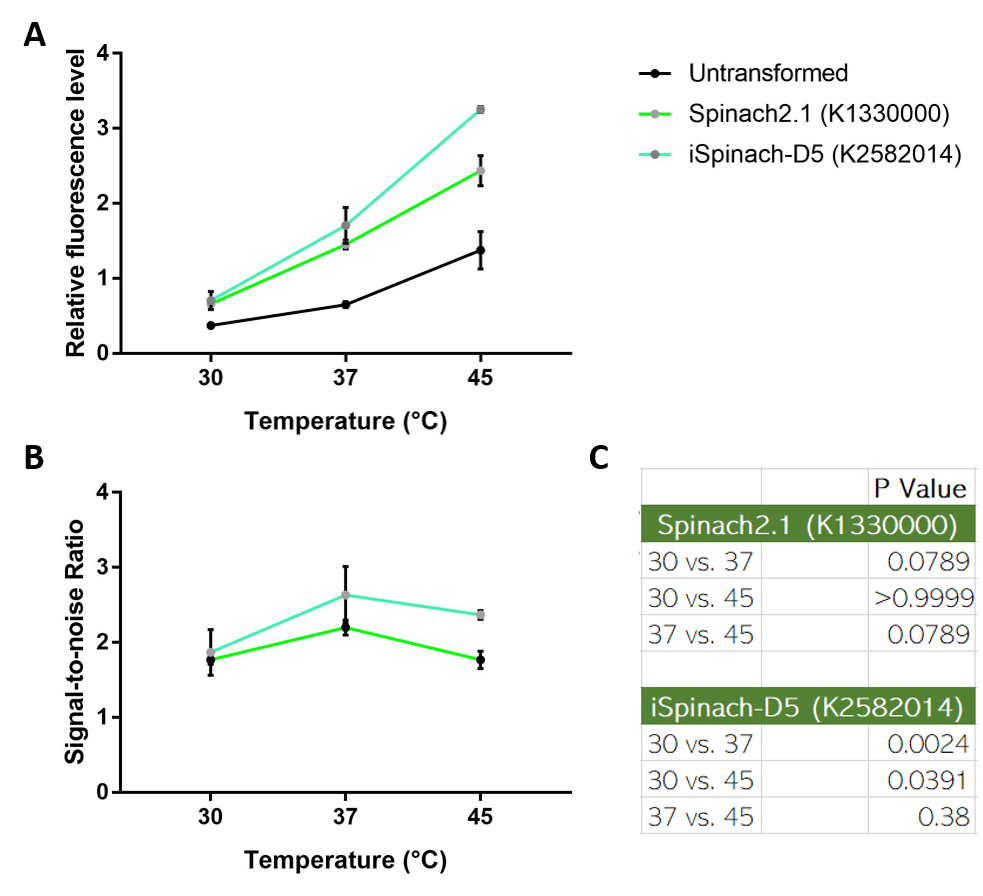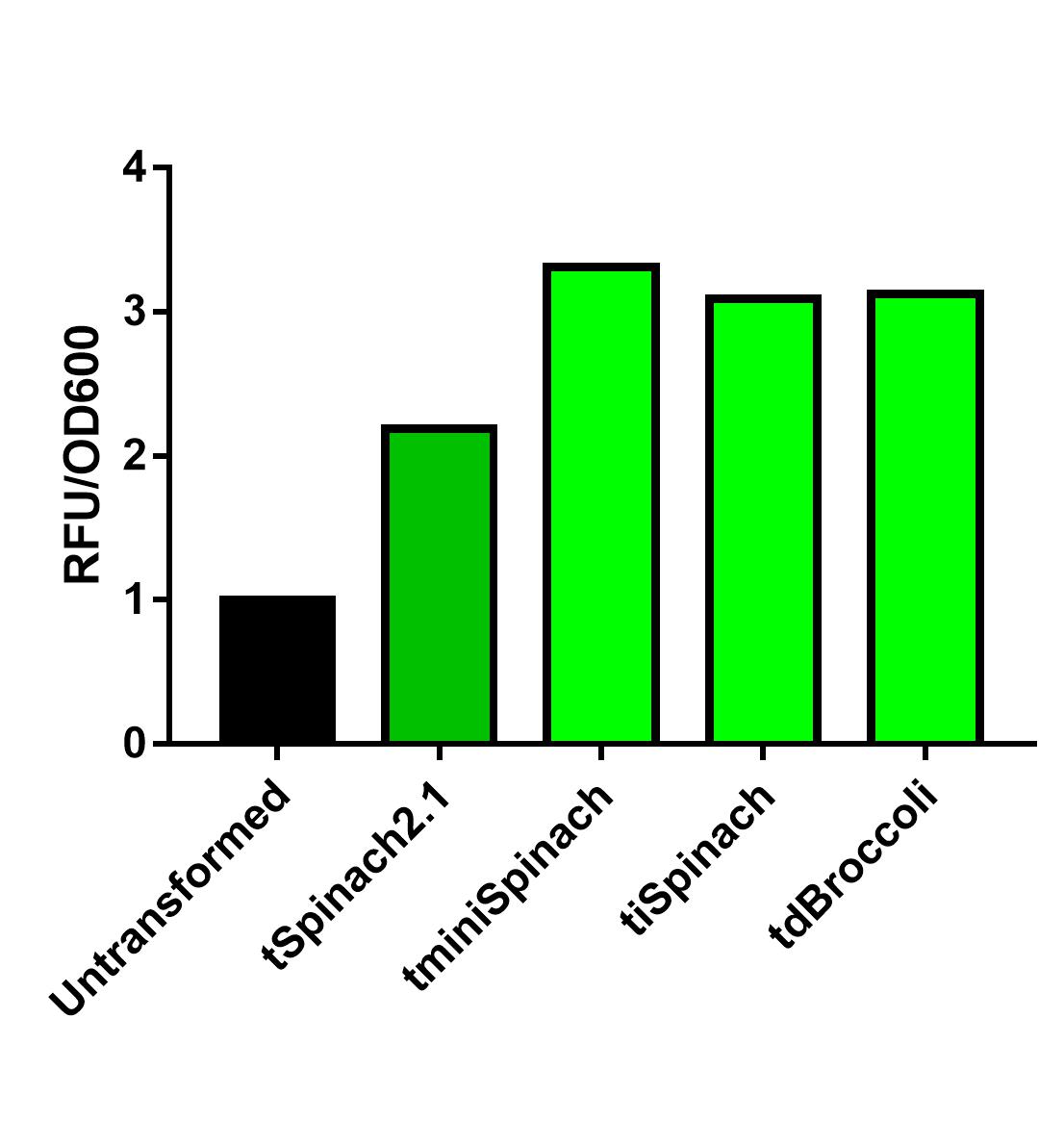Difference between revisions of "Part:BBa K2582014"
Frederickk (Talk | contribs) |
Frederickk (Talk | contribs) |
||
| Line 13: | Line 13: | ||
<p style="clear:left"></p> | <p style="clear:left"></p> | ||
Collaborating with NUS-A team, we also observed that iSpinach-D5 is moderately more resistant to 37->45 degrees Celsius change than Spinach2.1. However, it was also more vulnerable to 37->30 degrees Celsius change. | Collaborating with NUS-A team, we also observed that iSpinach-D5 is moderately more resistant to 37->45 degrees Celsius change than Spinach2.1. However, it was also more vulnerable to 37->30 degrees Celsius change. | ||
| − | [[File:ImproveNUS.png|800px|thumb|left|Fluorescence data obtained from plate reader. DH5a transformed with pSB1C3-lpp-Spinach2.1 or iSpinach-D5 were incubated overnight at 30, 37 or 45 degrees Celsius. Overnight culture was normalized to OD=0.2 and incubated in 200uM DFHBI for 45 minutes at their incubation temperatures. N=3.]] | + | [[File:ImproveNUS.png|800px|thumb|left|(A) Fluorescence data obtained from plate reader. DH5a transformed with pSB1C3-lpp-Spinach2.1 or iSpinach-D5 were incubated overnight at 30, 37 or 45 degrees Celsius. Overnight culture was normalized to OD=0.2 and incubated in 200uM DFHBI for 45 minutes at their incubation temperatures. (B) Signal-to-noise ratio calculated by dividing fluorescence level of Spinach-expressing E. coli with that of untransformed E. coli. (C) Multiple t-tests across temperatures. 37 vs 45 P-value of iSpinach is larger than that of Spinach2.1. N=3.]] |
<p style="clear:left"></p> | <p style="clear:left"></p> | ||
Revision as of 18:59, 16 October 2018
tRNALys3-iSpinach-D5
This part is a RNA reporter that can be used to measure promoter activity directly. It contains the light-up RNA Aptamer in vitro Spinach-D5 (iSpinach-D5)in the human tRNALys3 scaffold. This biobrick is an improvement from K1330000, which is brighter and more temperature resistant then the original design.
Usage and Biology
The Spinach aptamer and its derivatives allow the docking of fluorogen 3,5-difluoro-4-hydroxybenzylidene imidazolinone (DFHBI) and increases its quantum yields by hundreds of folds. By surrounding it with a tRNA scaffold, its folding in cell can be enhanced and its expression level can be stabilized.
Characterization
This aptamer can be expressed in E. coli DH5a under a constitutive lpp promoter. Comparing the 3 RNA reporters we constructed and the pre-existed Spinach2.1, iSpinach-D5 is moderately brighter.
Collaborating with NUS-A team, we also observed that iSpinach-D5 is moderately more resistant to 37->45 degrees Celsius change than Spinach2.1. However, it was also more vulnerable to 37->30 degrees Celsius change.

Sequence and Features
- 10COMPATIBLE WITH RFC[10]
- 12COMPATIBLE WITH RFC[12]
- 21COMPATIBLE WITH RFC[21]
- 23COMPATIBLE WITH RFC[23]
- 25COMPATIBLE WITH RFC[25]
- 1000COMPATIBLE WITH RFC[1000]

